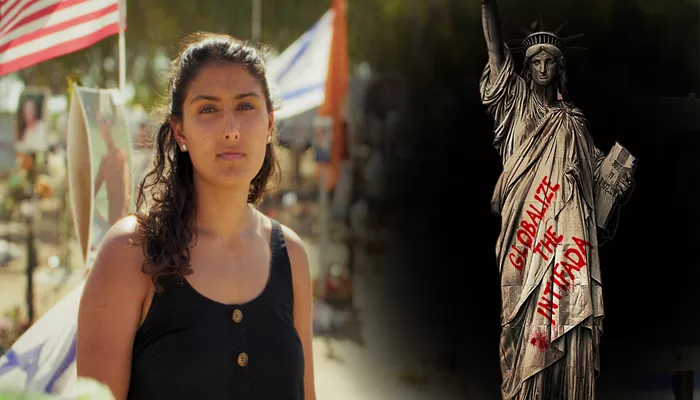The independently financed documentary October 8, directed by Wendy Sachs, presents a pro-Israel, American Jewish perspective on the growing rise of antisemitism, particularly in universities and across social media. The film focuses on the aftermath of the October 7 Hamas attack, which claimed over 1,200 lives and resulted in 251 hostages being taken.
Through an emotional and often impassioned narrative, Sachs assembles a diverse group of interviewees, including academics, journalists, Jewish leaders, and experts on extremism, to discuss the alarming uptick in antisemitic sentiments. The documentary features first-hand accounts from a survivor of the attack and U.S. college students whose support for Israel led to a wave of online harassment.
While the film sheds light on an important social issue, it offers a singular viewpoint, with little exploration of Israel’s response to the violence. The documentary frames the situation primarily through the lens of the Jewish community, with a narrative that critiques the university system and social media platforms for their handling of pro-Palestinian protests and antisemitic rhetoric. The film’s presentation does not delve deeply into the complexities of the Israeli-Palestinian conflict, failing to acknowledge the varying global perspectives on terrorism and freedom.
Notably, the documentary emphasizes the role of social media in shaping opinions and spreading misinformation. Representative Richie Torres, a Democrat from New York, points out that platforms often provide a breeding ground for anti-Israeli and anti-Jewish rhetoric, often shielded by anonymity. The film also criticizes the Social Justice for Palestine (SJP) movement, alleging its connections to groups like Hamas and the Muslim Brotherhood. Sachs traces the roots of the conflict to a 1993 meeting of Hamas officials in Philadelphia, which was monitored by the FBI.
October 8 also scrutinizes the media’s role in shaping public perceptions, drawing a comparison between the Israeli government’s invitation to journalists to cover the aftermath of the Hamas attacks and General Eisenhower’s decision to allow press access to Nazi concentration camps during World War II. The documentary calls out the New York Times for its premature and later corrected report on an Israeli airstrike on a hospital, based solely on Hamas-supplied information.
The film also touches on Hollywood’s response, with actor Debra Messing expressing disappointment that more in the entertainment industry did not condemn the violence or support the hostages, a sentiment echoed by actor Michael Rapoport.
Despite its emotional weight and the urgency of its message, October 8 remains a one-sided exploration of antisemitism, offering little in the way of a broader political or historical context. The film is a powerful resource for understanding the ways in which hate speech and misinformation spread, but it is limited in its exploration of the wider complexities surrounding the Israeli-Palestinian conflict.
Related topic:
Disney and Pixar Announce “Coco 2,” Set for 2029 Release
AI-Powered Technology Transforms Swedish Sci-Fi Film for U.S. Audiences
“The Day the Earth Blew Up” Revives Looney Tunes with a Fresh Twist

